Harshad Mehta Stock Market Scam
What is the one thing that is common between Harshad Mehta, Ketan Parekh, Nirav Modi, and Vijay Mallya?
They all found loopholes in Indian banking system and exploited that to create insane amount of wealth.
Today we will tell the story of the man who started it all “Harshad Mehta”. Adjusted for inflation today, Harshad Mehta fraudulently laundered over Rs 24,000 crore in the stock market over a period of just 3 years.
His story is really nothing short of a Bollywood movie and there is so much lot to learn from it.
The Beginning
Harshad Mehta was born in 1954 into a very poor family.
He completed his schooling from Raipur. But he was a very average kind of a student who didn’t show much promise. He was even once suspended from the school for in disciple and misconduct. After completing his schooling, he came to Mumbai where he did his BCOm from Lala Lajpat Rai college.
After graduation, he struggled a while taking low level odd jobs selling garments and appliances etc.. At that time, he had no idea what he would do in life but he kept exploring.
The Turning Point
His luck turnaround when he joined New India Assurance company as a sales person, from where he got first interested in the stock market.
He realized that this was the game he was born to play. So, he quit his job and joined a stock market brokerage firm in 1981.
He quickly learned the ins and outs of stock market, made connection with influential brokers and and within 3 years he himself became a broker with Bombay Stock Exchange.
By 1990, he had risen to prominence in the Indian stock market. He also established his own firm called Grow More Research and Asset Management.
But Mehta was not satisfied with his success- he had bigger ambitions. So in this lust for money, he started exploiting various loopholes in our banking system.
The Banking Loophole
At that time, the Reserve Bank had mandated all the banks to keep a certain minimum of their funds into government bonds. By the of each week, every bank needed to have a certain amount of government bonds, else RBI would penalize them.
Now, there were strong banks and there were weak banks. The strong banks had no trouble keeping the minimum balance of government bonds whereas the weak banks always struggled to do so.
Think of it like a homework given by a teacher. The good students always finish their homework on time whereas the weak students had to pay something to copy the homework of strong students.
So, similarly, the weak banks always had to borrow the government bonds from the strong banks. And in return, pay them some interest.
But these bank transactions were not done directly between the strong & weak banks. They were done through brokers – and one of them was Harshad Mehta.
So, Harshad Mehta would approach the weak banks and tell them that he would get them the government bonds they needed. And, for getting those bonds, the weak banks would write him a check on his personal name. Now, Mehta would ask them for some time to make the necessary arrangement. Since Mehta was so influential, these banks didn’t mind waiting for few extra days.
Next, Mehta would approach strong banks who had those extra government bonds and promised to give them extra interest in return. Here also, Mehta would ask for some extra time.
Since Mehta was very influential and reputed neither of the banks had any problem with giving some extra time.
At the end of promised time, he was keeping his promise to both the banks. The weak banks got the government bonds they needed and the strong banks were happy they made money from the interest. So, everybody was happy!
How was Mehta Making Money?
Remember that Mehta would ask for extra time from both the lending and borrowing banks? Well, during that time, he had all this massive cash in his own personal account and he was funnelling that money into the stock market.
He would pick select shares of companies and just kept buying their shares aggressively. Because of this massive liquidity injection, the share prices of these stocks would go up and because of that, other investors would also start buying the stock in anticipation of more movement. This would raise the stock prices even higher.
But wait a second… if the money was being pumped in the share market how was Mehta returning the money to back the strong banks who lent the bonds?
Here is where his genius comes in. He was not just dealing with these two banks. He was dealing with a whole lot of them and he became very good at rotating the money from the lenders to buyers and whenever the stocks that he pumping run up a lot, he would liquidate his positions from the stock market and take care of any deficits.
So, all in all, Mehta was rotating the money between the banks and the stock market. And he was getting very good at that.
All this was working out very well for but Mehta got more greedy..he wanted more.
Mehta’s Big Mistake
So, he conspired with the officials of two banks: Bank of Karad and Metropolitan Co-operative Bank to issue fake bank receipts- that were not backed by any government bond. So, they were nothing but pieces of paper.
Once these fake BRs were issued, they were passed on to banks and the banks in turn gave money to Mehta, obviously assuming that they were lending against government securities when this was not really the case.
This money was used to drive up the prices of stocks in the stock market.
Recommended Read: Pump and Dump Schemes in Stock Market
When time came to return the money, the shares were sold for a profit and the BR was retired. The money due to the bank was returned.
The game went on as long as the stock prices kept going up and no one had a clue about Mehta’s modus operandi.
In fact, this massive amount of liquidity gave an adrenaline shot to the stock market in general and the market began to make major moves.
The biggest in India’s stock-market history, starting a boom that saw the BSE quadrupling its index to in the span of just 1 year and because of that, Mehta’s own portfolio of stock holdings gained in value by close to 10 times to an estimated Rs 2,000 crore.
One of the stocks he pumped was ACC. He moved it from 200 rupees to 9000. Just goes to show how crazy valuations get when liquidity is behind the stock. Here are some other stocks he later pumped.
- Associated Cement Co. (ACC)
- Apollo Tyres
- Reliance
- Tata Iron and Steel Co. (TISCO )
- BPL
- Sterlite
- Videocon
Mehta’s Life Style
All this money made Mehta a hero in the stock market.
People started calling him the “Amitabh Bachchan of stock market”.
He lived a very luxurious lifestyle and was never shy to show off his wealth.
He bought a 15,000 foot property in Mumbai which had a mini golf course and a swimming pool. He had fleet of foreign cars which were ever not even affordable to the richest of the rich people.
But all this show off and blind greed got him into trouble.
How Harshad Mehta Scam Exposed?
An investigative journalist named Suchita Dalal, got wind of Mehta’s modus operandi and she published an expose in Times of India.
This was beginning of Harshad Mehta’s end.
All the senior officials in the banks got alerted immediately and the lending banks began to ask for money. Remember, that paying money back typically was never a problem for Harshad Mehta because he would just sell his shares and fulfil the obligations but this time it was different.
Because as soon as the scandal broke, the market started crashing and the value of Mehta’s shares dropped steeply. So, he had no way to repay the banks. It didn’t take much time for CBI to step up; they charged him with 70 counts of fraud charges.
By this time, Mehta’s game was over. He was under Criminal custody in the Thane prison where he died of heart failure.
Mehta also took down a lot of other senior officials with him:
- Vijaya bank chairman committed suicide by jumping from top of the building
- Top treasury officials at the State Bank of India (SBI), National Housing Bank () Chairman and UCO Bank Chairman lost their jobs.
But most tragic of all, thousands of investors lost their hard-earned money and many of them never really recovered their losses. Once the hero of the stock market actually turned out to be the greatest villain for the investors.
Interestingly, two of the biggest Indian traders our time: Rakesh Jhunjhunwala and Radhakishan Damani made a lot of money by shorting the market at the time. They had the vision and understanding that the valuations can not reach skylevel just based on liquidity.
Harshad Mehta’s story and more recently the Nirav Modi scandal, are humble reminders that our banking system and the stock market are extremely vulnerable to manipulation. It also teaches that when the valuations of companies start to get on the crazy side, smart investors should start getting cautious instead of getting greedy.
Howdy!
If you’re here for the first time, let’s get introduced.
VRD Nation is India’s premier stock market training institute and we (Team VRD Nation) are passionate about teaching each and every aspect of investing and trading.
If you’re here for the first time, don’t forget to check out “Free Training” section where we have tons of free videos and articles to kick start your stock market journey.
Also, we got two awesome YouTube channels where you can continue the learning process.
Must-Read Articles
Harshad Mehta Stock Market Scam
What is the one thing that is common between Harshad Mehta, Ketan Parekh, Nirav Modi, and Vijay Mallya?
They all found loopholes in Indian banking system and exploited that to create insane amount of wealth.
Today we will tell the story of the man who started it all “Harshad Mehta”. Adjusted for inflation today, Harshad Mehta fraudulently laundered over Rs 24,000 crore in the stock market over a period of just 3 years.
His story is really nothing short of a Bollywood movie and there is so much lot to learn from it.
The Beginning
Harshad Mehta was born in 1954 into a very poor family.
He completed his schooling from Raipur. But he was a very average kind of a student who didn’t show much promise. He was even once suspended from the school for in disciple and misconduct. After completing his schooling, he came to Mumbai where he did his BCOm from Lala Lajpat Rai college.
After graduation, he struggled a while taking low level odd jobs selling garments and appliances etc.. At that time, he had no idea what he would do in life but he kept exploring.
The Turning Point
His luck turnaround when he joined New India Assurance company as a sales person, from where he got first interested in the stock market.
He realized that this was the game he was born to play. So, he quit his job and joined a stock market brokerage firm in 1981.
He quickly learned the ins and outs of stock market, made connection with influential brokers and and within 3 years he himself became a broker with Bombay Stock Exchange.
By 1990, he had risen to prominence in the Indian stock market. He also established his own firm called Grow More Research and Asset Management.
But Mehta was not satisfied with his success- he had bigger ambitions. So in this lust for money, he started exploiting various loopholes in our banking system.
The Banking Loophole
At that time, the Reserve Bank had mandated all the banks to keep a certain minimum of their funds into government bonds. By the of each week, every bank needed to have a certain amount of government bonds, else RBI would penalize them.
Now, there were strong banks and there were weak banks. The strong banks had no trouble keeping the minimum balance of government bonds whereas the weak banks always struggled to do so.
Think of it like a homework given by a teacher. The good students always finish their homework on time whereas the weak students had to pay something to copy the homework of strong students.
So, similarly, the weak banks always had to borrow the government bonds from the strong banks. And in return, pay them some interest.
But these bank transactions were not done directly between the strong & weak banks. They were done through brokers – and one of them was Harshad Mehta.
So, Harshad Mehta would approach the weak banks and tell them that he would get them the government bonds they needed. And, for getting those bonds, the weak banks would write him a check on his personal name. Now, Mehta would ask them for some time to make the necessary arrangement. Since Mehta was so influential, these banks didn’t mind waiting for few extra days.
Next, Mehta would approach strong banks who had those extra government bonds and promised to give them extra interest in return. Here also, Mehta would ask for some extra time.
Since Mehta was very influential and reputed neither of the banks had any problem with giving some extra time.
At the end of promised time, he was keeping his promise to both the banks. The weak banks got the government bonds they needed and the strong banks were happy they made money from the interest. So, everybody was happy!
How was Mehta Making Money?
Remember that Mehta would ask for extra time from both the lending and borrowing banks? Well, during that time, he had all this massive cash in his own personal account and he was funnelling that money into the stock market.
He would pick select shares of companies and just kept buying their shares aggressively. Because of this massive liquidity injection, the share prices of these stocks would go up and because of that, other investors would also start buying the stock in anticipation of more movement. This would raise the stock prices even higher.
But wait a second… if the money was being pumped in the share market how was Mehta returning the money to back the strong banks who lent the bonds?
Here is where his genius comes in. He was not just dealing with these two banks. He was dealing with a whole lot of them and he became very good at rotating the money from the lenders to buyers and whenever the stocks that he pumping run up a lot, he would liquidate his positions from the stock market and take care of any deficits.
So, all in all, Mehta was rotating the money between the banks and the stock market. And he was getting very good at that.
All this was working out very well for but Mehta got more greedy..he wanted more.
Mehta’s Big Mistake
So, he conspired with the officials of two banks: Bank of Karad and Metropolitan Co-operative Bank to issue fake bank receipts- that were not backed by any government bond. So, they were nothing but pieces of paper.
Once these fake BRs were issued, they were passed on to banks and the banks in turn gave money to Mehta, obviously assuming that they were lending against government securities when this was not really the case.
This money was used to drive up the prices of stocks in the stock market.
Recommended Read: Pump and Dump Schemes in Stock Market
When time came to return the money, the shares were sold for a profit and the BR was retired. The money due to the bank was returned.
The game went on as long as the stock prices kept going up and no one had a clue about Mehta’s modus operandi.
In fact, this massive amount of liquidity gave an adrenaline shot to the stock market in general and the market began to make major moves.
The biggest in India’s stock-market history, starting a boom that saw the BSE quadrupling its index to in the span of just 1 year and because of that, Mehta’s own portfolio of stock holdings gained in value by close to 10 times to an estimated Rs 2,000 crore.
One of the stocks he pumped was ACC. He moved it from 200 rupees to 9000. Just goes to show how crazy valuations get when liquidity is behind the stock. Here are some other stocks he later pumped.
- Associated Cement Co. (ACC)
- Apollo Tyres
- Reliance
- Tata Iron and Steel Co. (TISCO )
- BPL
- Sterlite
- Videocon
Mehta’s Life Style
All this money made Mehta a hero in the stock market.
People started calling him the “Amitabh Bachchan of stock market”.
He lived a very luxurious lifestyle and was never shy to show off his wealth.
He bought a 15,000 foot property in Mumbai which had a mini golf course and a swimming pool. He had fleet of foreign cars which were ever not even affordable to the richest of the rich people.
But all this show off and blind greed got him into trouble.
How Harshad Mehta Scam Exposed?
An investigative journalist named Suchita Dalal, got wind of Mehta’s modus operandi and she published an expose in Times of India.
This was beginning of Harshad Mehta’s end.
All the senior officials in the banks got alerted immediately and the lending banks began to ask for money. Remember, that paying money back typically was never a problem for Harshad Mehta because he would just sell his shares and fulfil the obligations but this time it was different.
Because as soon as the scandal broke, the market started crashing and the value of Mehta’s shares dropped steeply. So, he had no way to repay the banks. It didn’t take much time for CBI to step up; they charged him with 70 counts of fraud charges.
By this time, Mehta’s game was over. He was under Criminal custody in the Thane prison where he died of heart failure.
Mehta also took down a lot of other senior officials with him:
- Vijaya bank chairman committed suicide by jumping from top of the building
- Top treasury officials at the State Bank of India (SBI), National Housing Bank () Chairman and UCO Bank Chairman lost their jobs.
But most tragic of all, thousands of investors lost their hard-earned money and many of them never really recovered their losses. Once the hero of the stock market actually turned out to be the greatest villain for the investors.
Interestingly, two of the biggest Indian traders our time: Rakesh Jhunjhunwala and Radhakishan Damani made a lot of money by shorting the market at the time. They had the vision and understanding that the valuations can not reach skylevel just based on liquidity.
Harshad Mehta’s story and more recently the Nirav Modi scandal, are humble reminders that our banking system and the stock market are extremely vulnerable to manipulation. It also teaches that when the valuations of companies start to get on the crazy side, smart investors should start getting cautious instead of getting greedy.













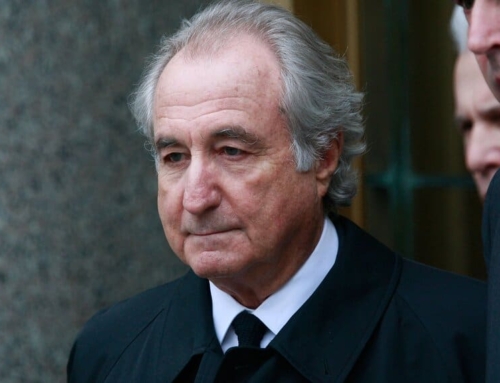
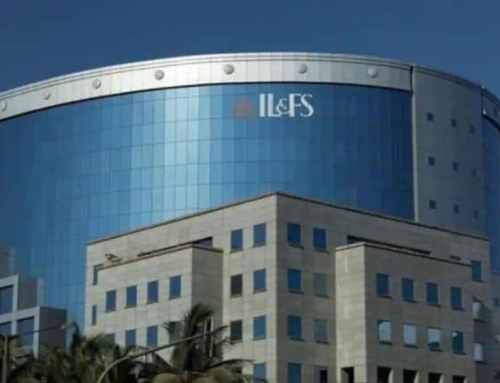
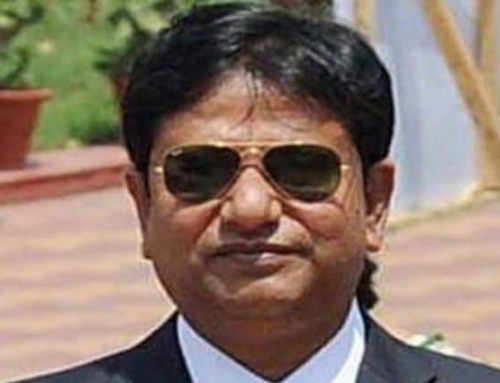
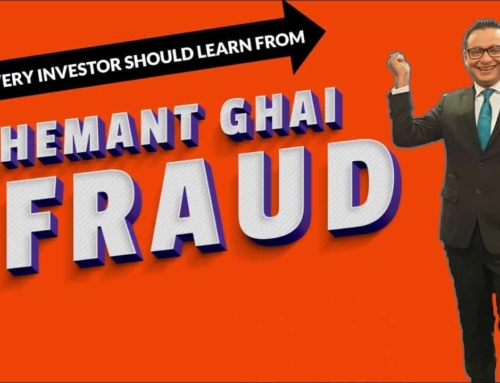
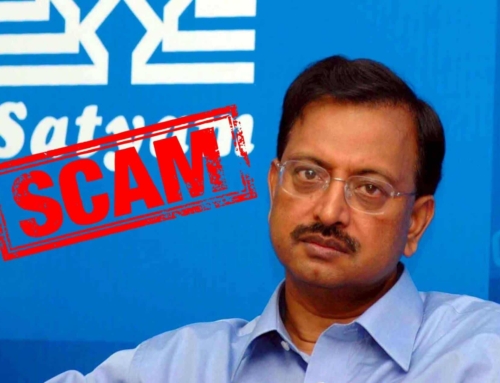

Leave A Comment